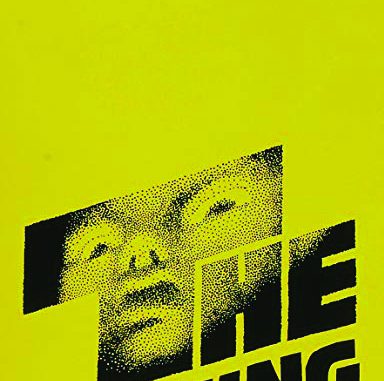
Voiced by Natalie Gadeikis, Staff Writer

Written by Alberto Gomez, Entertainment Editor

Film, TV, and theatre are hyper-dramatizations of reality. The most elegant and rapturing stories center around realistic content, in a sense. What makes Titanic beautiful is how genuine the characters and their tragedy feel, that in our heads, audiences would go to the same lengths and feel the same way were they in love the same heart-wrenching way. Alien succeeds because it realistically depicts how normal people respond to unknown possible reality.
Stanley Kubrick’s 1980 adaptation of The Shining is held in high regard as a classic and masterful piece of cinematic art. Absurd and mind-boggling can’t begin to describe the adventure that besets the Torrance family as they spend five months in the secluded Overlook Hotel. At face value, The Shining is a disturbing story of a father that slowly slips into insanity and eventually attempts to wreak havoc on his wife and son, who also happen to have a dangerous connection to an otherworldly telekinetic power.
Should an audience view The Shining in such a simplistic way, they miss seeing the hyper-dramatized reality that is highlighted. The Shining is more than a creepy, spooky movie, it is a disturbing look at how dangerous an abusive father can be to the people he loves. From the very start of the movie, there are tiny hints that Jack Torrance, the film’s assumed protagonist, is slightly unhinged. Jack is referred to as a former school teacher from Vermont who moved to Colorado. Minor details like this typically create a character, but a deep and interested viewer should always see these details as more. Nothing in a film should ever be said for the sake of being said. In an excellent film, there is never a throwaway line. Rather than just being a teacher who decided to leave his job, audiences should look for a strong reason as to why Jack would leave his job, using other clues in the film.
While conversing with a doctor a few scenes later, Jack’s wife Wendy casually discusses how one normal night, Jack came home drunker than usual. Their son Danny had papers scattered across the living room floor, presumably drawing and playing around. Jack, in a rush of anger, yanks his son off the floor and promptly hollered at him. In doing so, Jack dislocated Danny’s shoulder. After that, the family moved from Vermont to Colorado.
When audiences link these two pieces together, they realize that Jack is more than an occasional drinker and swinger. How casually Wendy talks about her husband indicates that it doesn’t strike her as much. As though this type of behavior is normal, further suggesting that this wasn’t Jack’s first time harming his son.
As a coping mechanism, Danny’s imaginary friend Tony conjures himself into the family’s life. Late into the film, Tony reveals himself to be a spirit, the source of Danny’s psychic power. Children make up imaginary friends when they lack a dear or close connection to others. In this case, Tony’s appearance can be credited to Danny’s inability to make friends in his new Colorado school. Furthermore, also as a coping mechanism, children tend to imagine themselves as being “special,” in a sense. At this point, The Shining’s hyper-dramatization turns face with Danny’s power.
The Shining shines because of how wildly it depicts a possibly real scenario. The demons, spirits, and evildoers harassing the Torrance family is an exaggeration of the situation. Because the film hyper-dramtizes the situation, it can tackle sensitive themes and motifs without drawing direct attention to it. When most people think of The Shining, they gloss over the subtle hints to Jack’s abuses to his family and focus on the unsettling visuals and scenes instead.
The closest that Kubrick gets to openly exposing Jack’s tendencies is extremely close to the end of the film when he loses all his marbles and begins talking to spirits, bargaining with the Devil, and swinging at his wife and son. At peak of action, Jack loses all sanity and goes berserk for seemingly no reason. Some critics complain that Jack’s turn comes off as too rash and poorly paced. But, when looking at The Shining with this new context, audiences can see that Jack’s behavior has always been there. Deep down, Jack’s always been off kilter. It’s only in deep isolation with his family that Jack snapped. Jack’s snap can also be seen as how monstrous Danny sees his father when he goes barbaric.
The Shining is more than a horror masterpiece, it’s a disturbing dramatization of how a young boy tries to cope with his reality. This is Kubrick’s attempt to show how horrific an abusive parent can be to a child and spouse, that no matter how the abuser seems on the outside to the public, a deeper demon lies within, only seen by the one’s he sadistically loves and love him back.
